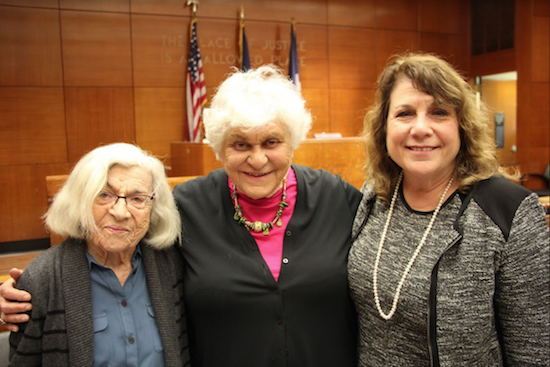Brooklyn courthouse holds Holocaust Remembrance event with two survivors

Two women whose families fled Germany during World War II spoke at the Brooklyn Supreme Court, Civil Term, on Thursday as part of the court’s annual Holocaust Remembrance program. The event was co-sponsored by the Brooklyn Brandeis Society, the Brooklyn Bar Association and the Brooklyn Women’s Bar Association.
“The best way to look at me is like an Anne Frank who survived,” said Suzanne Loebl, a Brooklyn Heights resident since 1994. “I was born in Germany and I was 8 when Hitler came to power.”
Loebl explained that her family initially fled to Brussels, but had to flee when the Germans attacked France. The day of the invasion by Germany, her father was arrested by the Belgium police, and she, her mother and her sister ran away to France. Her father was eventually sent to the U.S., but the family would not see him again for six years.

Brooklyn Boro
View MoreNew York City’s most populous borough, Brooklyn, is home to nearly 2.6 million residents. If Brooklyn were an independent city it would be the fourth largest city in the United States. While Brooklyn has become the epitome of ‘cool and hip’ in recent years, for those that were born here, raised families here and improved communities over the years, Brooklyn has never been ‘uncool’.